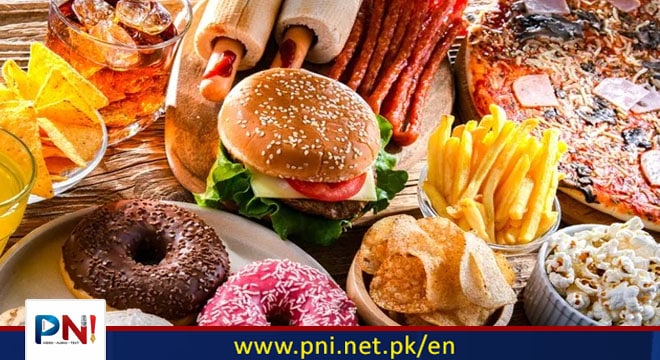ISLAMABAD, Oct. 24 (ONLINE): – People who eat more ultra-processed foods – particularly artificial sweeteners and-artificially sweetened drinks – could be at higher risk of depression, according to new research.
The study was published recently in JAMA Network Open.
Ultra-processed foods are energy-dense and ready-to-eat food items including things like processed breakfast meats, packaged snacks, and ice cream as well as artificially sweetened drinks. Artificial sweeteners, also an ultra-processed food, include things like aspartame, sucralose, and saccharine.
“What we found is that consuming high amounts of ultra-processed foods could increase your risk of developing depression by up to 50%,” said Raaj Mehta, MD, MPH, one of the study’s authors and a gastroenterologist at Massachusetts General Hospital in Boston.
This study adds to growing concerns about these kinds of foods, he said.
It’s just another piece of evidence that these foods harm our bodies, he said, and not just our physical health.
The Basics: Artificial Sweeteners
Do artificial sweeteners cause cancer or other health problems? Here’s the sweet truth.
“The reason why this is so important is that people aren’t always aware of the connection between nutrition and diet and mental health, and so I think what this could do is really encourage physicians to start to have those conversations that what you’re eating does actually affect potentially how you’re feeling,” Mehta said.
He said that because this is an observational study – where one group of people is followed and studied for an extended period of time and there are no control and treatment groups — they cannot say highly processed food causes depression. That said, he thinks the data is strong.
“We were able to adjust for a number of what are called confounding variables in our analysis to suggest that eating more ultra-processed foods really could increase your risk of depression.”
“Sometimes what you see when you adjust for these variables is that the models or the results get weaker. And we didn’t really see that at all,” he later said.
Mehta said he wanted to do the study to examine the “gut-brain axis,” which he described as a “bidirectional highway between your intestines and the brain.”
“We looked at the literature and saw that there was some data that diet affected risk of depression, but we didn’t, at the end of the day, know which specific foods are responsible.”
Ultra-processed foods have been linked to health conditions ranging from diseases of the heart and blood vessels to dementia to cancer, Mehta said, but there really wasn’t much evidence about the risk of depression.
Researchers did the analysis using the Nurses’ Health Study II between 2003 and 2017 among 31,712 middle-aged women without depression at the start of the study. They looked at the patients’ diet every 4 years using food surveys.
In a later analysis, they grouped ultra-processed food into subgroups such as ultra-processed grain foods, ready- to-eat meals, processed dairy products, sweet snacks, drinks and artificial sweeteners, etc.
They took into account other possible risk factors for depression, including smoking, exercise level, body mass index (BMI), alcohol use, total energy intake, other diseases that people in the study had, and more. Authors evaluated the link between changes in ultra-processed consumption updated every 4 years and rates of depression.
Researchers found that the women who ate a lot of ultra-processed food also had a higher BMI; higher smoking rates; higher rates of diabetes and hypertension; and were less likely to exercise regularly.
Follow the PNI Facebook page for the latest news and updates.








